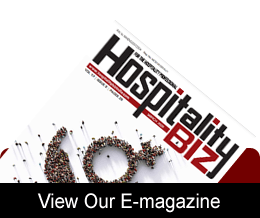By Harish Chandra, Founder, Global Hospitality Technology Professionals Group (GHTP)
Developing a risk management plan for a hotel involves several crucial components, but one of the most important parts is conducting a comprehensive risk assessment. This process involves identifying, analyzing, and evaluating potential risks and hazards that could affect the hotel’s operations, guests, employees, and assets. The goal is to understand the various risks the hotel might face and prioritize them based on their likelihood and potential impact.
Here are key steps within the risk assessment phase that are critical for a hotel’s risk management plan:
Identification of Risks: Identify potential risks specific to the hotel industry. These may include natural disasters (like earthquakes, floods, hurricanes), security threats (theft, cyberattacks), operational risks (equipment failure, power outages), health and safety risks (pandemics, accidents), legal and compliance risks, and reputational risks.
Risk Analysis: Evaluate and analyse the identified risks in terms of their likelihood of occurrence and potential impact. This step involves quantifying and qualifying risks to understand their severity and the extent of potential damage.
Prioritization: Prioritize risks based on their significance, considering factors such as potential impact on guests, employees, financials, and the hotel’s reputation. This helps in allocating resources effectively to address the most critical risks first.
Risk Mitigation Strategies: Develop strategies to mitigate, avoid, transfer, or reduce the identified risks. This could involve implementing safety protocols, acquiring insurance coverage, investing in security systems, staff training for emergency procedures, and establishing contingency plans.
Monitoring and Review: Continuously monitor and review the effectiveness of the risk management plan. Risks evolve over time, so regular assessments and updates to the plan are necessary to ensure its relevance and effectiveness.
Additionally, communication and training play a crucial role in a hotel’s risk management plan. Employees should be well-trained in emergency procedures and protocols to ensure they can respond effectively in critical situations. Clear communication channels and protocols for informing guests and staff during emergencies are vital components of the plan as well.
Ultimately, a well-designed risk management plan not only identifies potential risks but also outlines proactive measures to minimise their impact, ensuring the safety and security of guests, employees, and the hotel’s assets.


